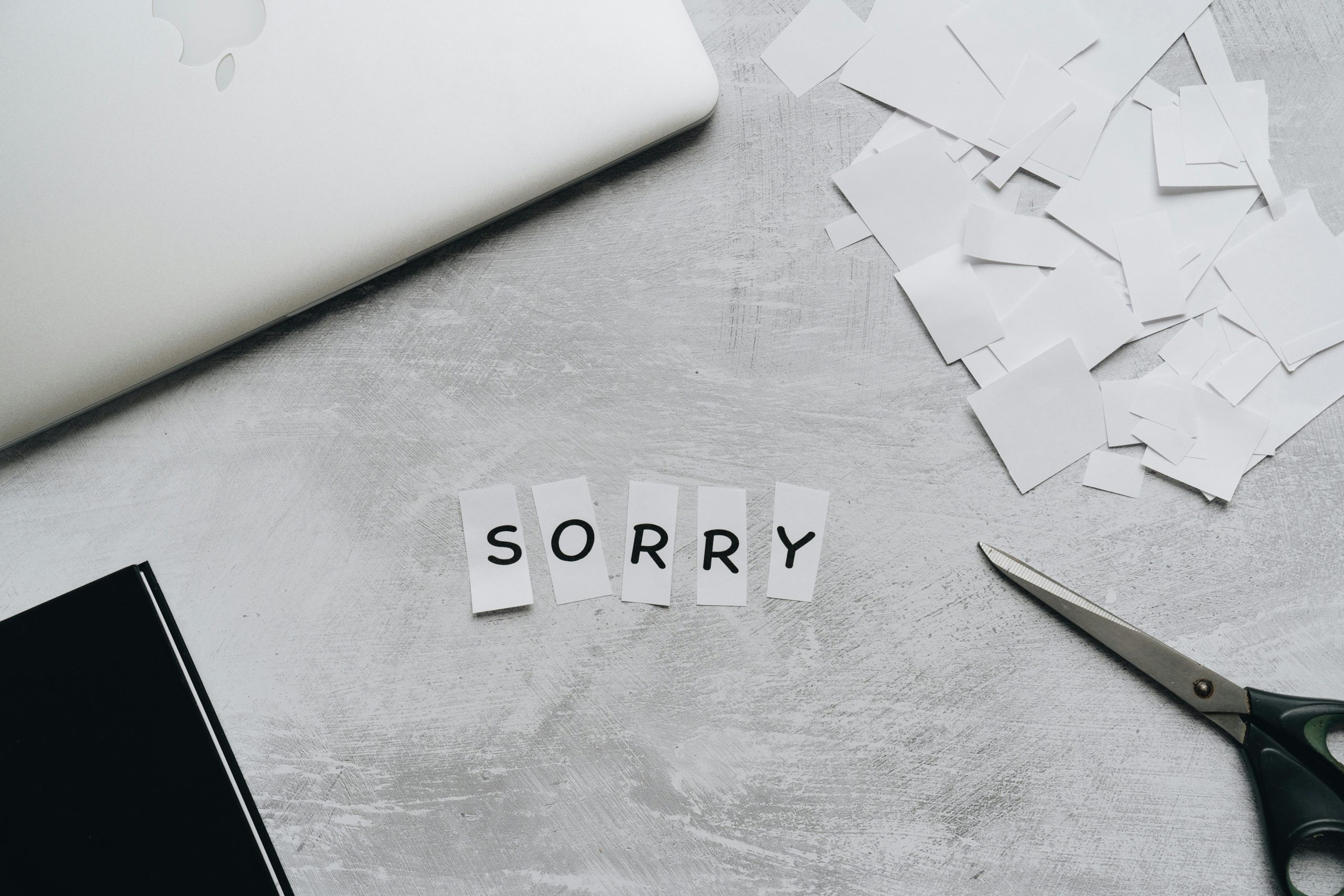Your cart is currently empty!
Why You Should Remove “Sorry” From Your Vocabulary Right Now

Have you ever caught yourself apologizing for things that aren’t even your fault? From asking a simple question to brushing past someone in a crowded space, it seems like “sorry” has become a reflex for many of us. But what if this small word is quietly undermining your self-esteem and even how others perceive you? While apologizing might feel polite, using it too often can have some surprising consequences you may not have considered. Could there be a better way to communicate without over-apologizing? Let’s explore why we say “sorry” so much—and why it might be time to rethink how we use it.
The Devaluation of “Sorry” and Its Impact on Self-Worth
Apologizing is a crucial part of healthy communication, but saying “sorry” too often can diminish its value. A 2010 study by Karina Schumann and Michael Ross, published in Psychological Science, suggests that women tend to apologize more than men because they perceive a wider range of behaviors as needing an apology. This “lower threshold” for offensive behavior means that women often apologize for situations that may not actually require it.
The problem with over-apologizing is that it turns a heartfelt gesture into something routine and less meaningful. The more you say “sorry” for things beyond your control, the more the word loses its sincerity. When apologies become habitual, they stop being effective in resolving conflicts and can make others take them less seriously.
This also has a ripple effect on self-esteem. Apologizing unnecessarily can signal to others—and to yourself—that your actions or needs are somehow less important. It can reinforce feelings of inadequacy and low confidence. Instead of feeling empowered, you might start feeling like you need to apologize for simply taking up space, which devalues both your words and your worth.

Why “Sorry” Isn’t a Conflict Resolution Tool
Saying “sorry” might seem like the easiest way to end a disagreement, but using it to dodge conflict often causes more harm than good. According to studies on communication, apologies that aren’t sincere or are used to avoid confrontation don’t actually resolve the underlying issue. In fact, these types of apologies—known as “confrontation-avoiding” apologies—are often a tactic to end uncomfortable situations without resolving the root of the conflict. These apologies can feel empty because they lack the necessary elements of sincerity, such as taking responsibility and offering a solution.
When we say “sorry” just to make the other person stop talking or to defuse a situation quickly, we miss the opportunity to address the real problem. In such cases, the conflict remains unresolved and is likely to reappear later. True resolution involves acknowledging the issue, understanding its impact, and making an effort to correct it.
Even worse, using apologies manipulatively can damage relationships. Apologies like “I said I’m sorry, what more do you want?” can be seen as dismissive and invalidate the other person’s feelings. This type of apology can turn into a tool for manipulation, shifting the focus away from the problem and onto the offended party’s reaction, making them feel like they are overreacting.

Breaking the “Sorry” Habit: What to Say Instead
If you’ve noticed that “sorry” has become your go-to word, there are simple and effective strategies to shift your language and regain confidence. Over-apologizing, often linked to people-pleasing or avoiding conflict, can diminish your self-worth and send the wrong message to others. But breaking this habit is possible by introducing alternative phrases and practicing mindful communication.
1. Express Gratitude Instead of Apology
One of the easiest ways to stop over-apologizing is by reframing your words. For example, instead of saying, “Sorry I’m late,” try saying, “Thank you for waiting for me.” This approach shifts the focus from regret to appreciation, fostering a more positive interaction.
2. Use Alternative Phrases
Replace “sorry” with more neutral or empowering language:
- Instead of “Sorry for bothering you,” say, “Do you have a moment?”
- Instead of “Sorry for the confusion,” say, “Thank you for your patience while we sort this out”.
3. Pause and Reflect
Before blurting out an apology, pause and ask yourself: “Am I actually at fault here?” This helps you differentiate between necessary apologies and reflexive ones. It also gives you time to think of a more appropriate response.
4. Set Boundaries
Recognizing your own worth and setting clear boundaries can help reduce unnecessary apologies. Knowing when and how to say no without apologizing is an essential self-advocacy skill. Instead of, “Sorry, I can’t help right now,” try, “Unfortunately, I’m unavailable at the moment, but I can help later”.
Reclaiming Your Confidence
Cutting down on over-apologizing can transform not just how others perceive you, but also how you see yourself. When you reserve apologies for moments that truly deserve them, you signal confidence, assertiveness, and self-respect. Research has shown that unnecessary apologies often send the message that you’re insecure or feel less worthy, which can erode your self-esteem over time. As you learn to embrace your voice without constantly apologizing, you’ll reclaim your power and be more effective in both personal and professional interactions.
Reducing unnecessary apologies doesn’t mean avoiding responsibility—it’s about choosing when an apology is truly needed, and recognizing that your opinions and actions have value. By practicing mindful communication, setting clear boundaries, and replacing “sorry” with empowering phrases like “thank you for your patience,” you can reshape how others perceive you and, more importantly, how you perceive yourself.
